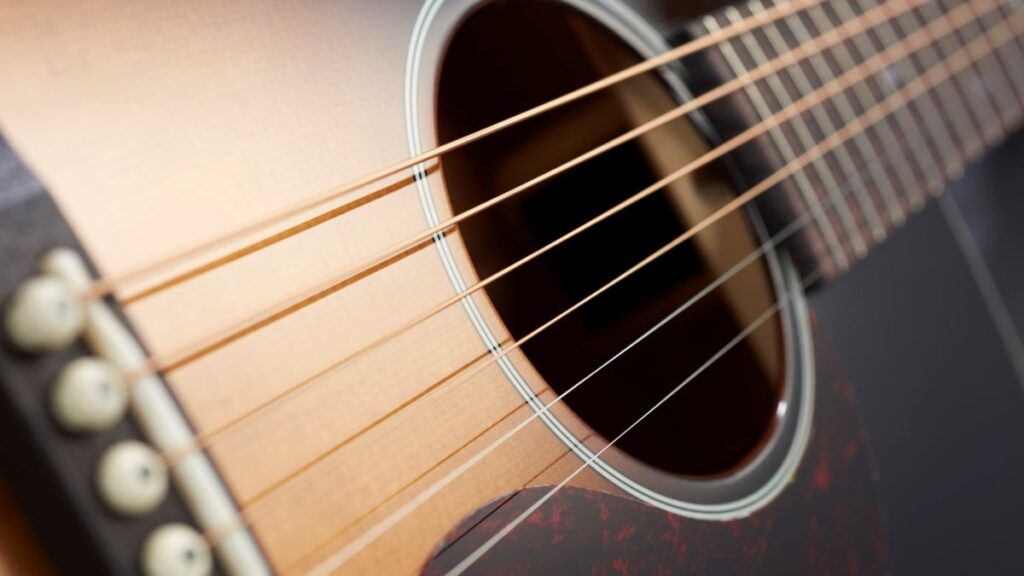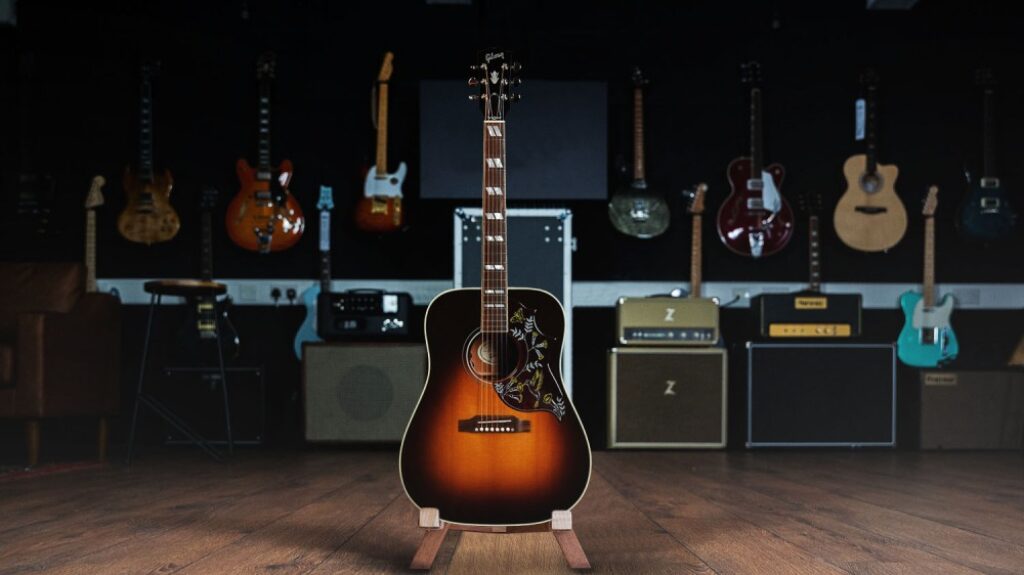
Welcome, future guitarists and seasoned strummers, to the captivating universe of acoustic guitars. Reverberating with soulful tones and rich harmonies, these instruments have shaped the landscape of music, touching hearts and inspiring countless songs. The journey to find the best acoustic guitar can be as rewarding as mastering your favorite tune, and we’re here to guide you every step of the way.
Table of Contents
Acoustic Guitars: The Basics

Source: online.berklee.edu
Delving into the basics of acoustic guitars aids in making an informed choice. To begin, let’s get acquainted with the essential parts of these instruments and their roles. An acoustic guitar is more than just strings and a body; its anatomy encompasses various components. From the headstock, tuners, neck, fretboard, body, to the bridge, each part contributes significantly to the creation of the guitar’s distinctive sound, ensuring its overall performance and playability.
When it comes to acoustic guitars, there is a range of options available, such as classical, dreadnought, and parlor guitars. Each type boasts its own distinct tonal qualities and playing characteristics. Ultimately, selecting the right acoustic guitar is a subjective decision, influenced by personal musical preferences and the desired experience while playing the instrument.
Factors to Consider When Choosing an Acoustic Guitar

Source: guitarplayer.com
In your quest to buy an acoustic guitar, several elements should guide your decision. Among these are the guitar’s size and shape, the type of wood used, your desired music style, your skill level, and your budget.
- Size and Shape of the Guitar – A guitar’s size and shape significantly influence its sound and playability. Larger-bodied guitars typically produce louder and more resonant sounds, while smaller ones offer a more focused tone. Understanding the differences can help you match a guitar to your style and physical comfort. Neck dimensions matter, especially for playability. A slimmer neck might suit those with smaller hands, while wider or longer necks offer more room for complex fingerings.
- The Type of Wood and Its Influence on Tone – The type of wood, often called ‘tonewood,’ contributes substantially to a guitar’s tonal character. The wood chosen for the top, or soundboard, of the guitar is critical. Softwoods like spruce or cedar are common choices, offering a balance between strength and flexibility for optimal vibration. Hardwoods are often used for the back and sides of the guitar, contributing to both the instrument’s durability and sound quality.
- The Style of Music You Want to Play – From folk to blues, every genre has acoustic guitars that better suit its style. For example, a dreadnought might be a good choice for strum-heavy music, while a classical guitar would suit fingerstyle play.
- Skill Level: Beginner, Intermediate, or Advanced – Your skill level can dictate the complexity and quality of the guitar you need. Beginners might prioritize affordability and ease of play, while advanced players might look for nuanced tonal qualities and premium build.
- Budget: Finding a Balance Between Quality and Price – Price ranges for acoustic guitars are vast. While higher price often equates to higher quality, many affordable models offer excellent value.
A Practical Guide to Guitar Selection
Testing the Sound Quality
Sound quality is subjective, varying based on personal preference and musical style. Listening to a guitar’s tone and resonance is crucial in your decision-making process. Tone refers to the character of the sound, while resonance indicates how sound waves interact within the guitar. Experiment with different playing styles and notes when testing a guitar’s sound. Listen for clarity, sustain, and balance across high, mid, and low frequencies.
Assessing the Guitar’s Build Quality
An acoustic guitar’s craftsmanship can significantly impact its sound and longevity. Check the guitar’s neck for straightness and the body for any cracks or unusual wear. The joints where the neck, body, and headstock connect should also be strong and stable. Inspect the tuners, bridge, and frets for durability and quality. These elements should function smoothly and show no signs of excessive wear.
Evaluating Playability: Comfort and Ease of Use
How a guitar feels in your hands is as important as how it sounds to your ears. The action—how high the strings are from the fretboard—can affect both sound and playability. Lower action is generally easier to play, but if it’s too low, the strings may buzz. The feel of the fretboard under your fingers can influence playing comfort. Check for smooth fret edges and an overall comfortable grip.
Essential Tips for Every Guitar Buyer

Source: guitarsquid.com
Importance of Trying Before Buying
Although the convenience of online shopping is undeniable, it cannot replace the invaluable experience of physically trying out a guitar before making a purchase. By testing a guitar in person, you can truly immerse yourself in its sound and tactile qualities, gaining a comprehensive understanding of how it suits your preferences and playing style. The ability to hear the instrument’s tones firsthand and feel its resonance under your fingertips allows for a more informed decision, ensuring that the guitar you ultimately choose resonates with you on a personal level.
Consideration of Future Growth and Goals
When selecting a guitar, it is essential to not only consider your current skill level but also your future aspirations as a musician. Investing in a guitar that can accommodate your future growth and goals is a wise choice. As you progress and develop your skills, having an instrument that can support your musical journey will be advantageous. Look for a guitar that offers room for advancement, both in terms of sound quality and playability. By choosing a guitar that aligns with your long-term musical ambitions, you can foster continuous growth and avoid the need for frequent instrument upgrades.
Now equipped with the knowledge to navigate the world of acoustic guitars, you’re ready to find your perfect instrument. Whether you’re a beginner dreaming of your first chord or an experienced player seeking a new sound, remember that the journey is as rewarding as the destination. So, play on, and let the music lead the way.







